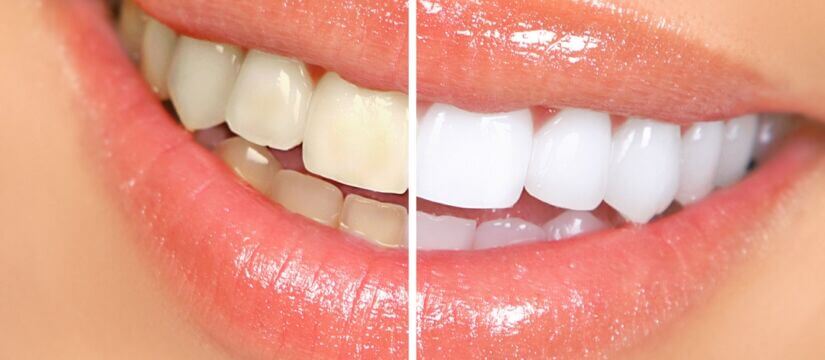
Diet and dental hygiene are key factors in maintaining white, healthy teeth. Unfortunately, certain foods and lifestyle habits may contribute to discoloration of the enamel of your teeth.
Crunchy vegetables and fruits such as apples and carrots serve as natural abrasives to effectively remove plaque and surface stains from teeth, while strawberries contain Malic acid, an enzyme which naturally whitens your enamel by breaking down stain-causing molecules.
Foods to Avoid
Once your whitening session is over, the essential thing you must avoid immediately following is dark-coloured foods—anything that would stain a white T-shirt, such as coffee, red wine, dark-hued juices (from fruits and vegetables), tomato-based sauces like pizza or pasta with tomato-based sauces such as tomato-based pasta sauces, dark condiments such as ketchup or mustard etc.
Acidic food and beverages should also be avoided to protect the enamel on your teeth from being stripped away, increasing your susceptibility to staining. This includes citrus fruits and juices, as well as fizzy sodas and pickles.
Sticking with foods that are lighter in colour and won’t stain should help keep your smile bright. Consider switching over to whole grains, white cheese, yogurt or light-coloured veggies/fruits such as pears and bananas as part of this “white diet.” Water should be your main beverage, as this won’t wear away enamel and protect newly whitened smiles—particularly important during the first 36–48 hours after whitening treatment!
Foods to Eat
Diets rich in fruits, vegetables, whole grains, and lean proteins can support teeth-whitening results while helping maintain healthy gums.
Fruits like strawberries and pineapples contain Proteolytic Enzymes which break down proteins to naturally whiten your smile by dissolving discolorations on the surface of your teeth. Strawberries also contain Malic acid, which is frequently found in professional teeth whitening products for its ability to remove surface stains from teeth.
Yogurt contains both lactic acid and calcium-rich milk products to strengthen enamel, providing teeth protection from staining. According to studies, regular consumption of yogurt has also been shown to lower the risk of reduced periodontal (gum) health.
Foods to Drink
Foods and drinks that stain teeth, including cola, coffee, tea, red wine and pop, should be avoided whenever possible. If this cannot be accomplished, drinking through a straw may reduce contact between these drinks and tooth enamel.
Water, particularly fluoridated water, is an integral component of any healthy diet. Fluoridated water helps cleanse the mouth of acid and bacteria, while also providing essential minerals (calcium and phosphorous) that strengthen teeth and help prevent cavities.
Eating crunchy foods such as cheese, apples, carrots, and celery stimulates saliva production to help cleanse away plaque and debris for a brighter smile. Leafy greens contain essential ingredients like folic acid, calcium phosphorous vitamins A and C, which all promote dental health.
Lifestyle Changes
If yellow teeth have been bothersome for you for an extended period, there are ways to restore them. Adopting better lifestyle habits may help slow and reverse discoloration processes.
Consuming more water and eating fruits, vegetables, and lean proteins can reduce the risk of tooth staining. Avoiding foods and drinks known to stain may also be effective; for example, if you regularly drink coffee, tea, red wine or dark sodas through a straw to protect your front teeth from staining.
However, to maintain optimal oral hygiene, it’s essential that you brush twice daily, floss daily, and use mouthwash regularly. In addition, regular visits to your dentist for professional cleanings every six months are recommended; these visits remove plaque and tartar that contributes to yellowed teeth as well as provide you with advice regarding any potential whitening treatments available from them.
Get in touch with our Sarnia dental team today to optimize your oral health and hygiene.
